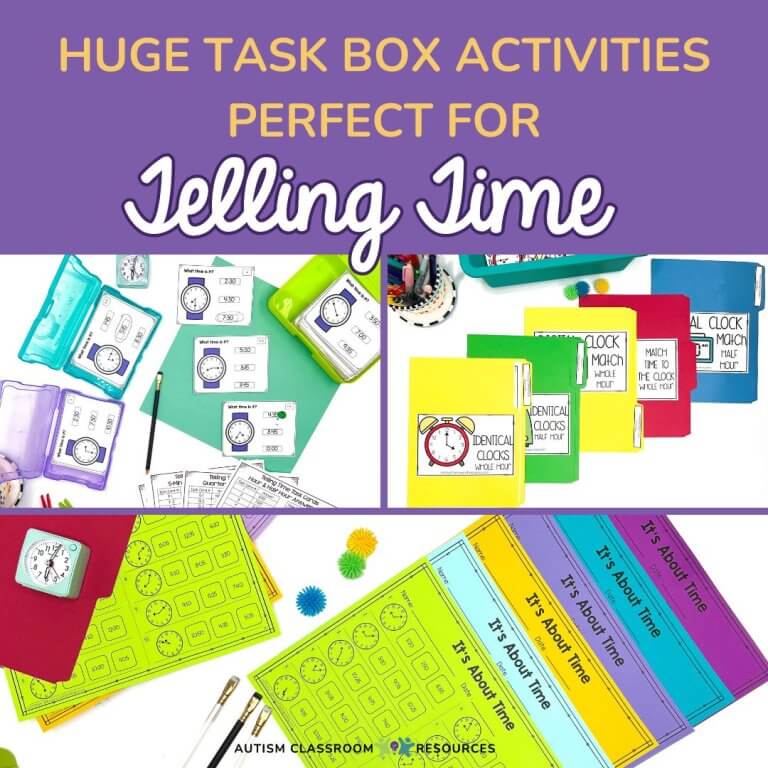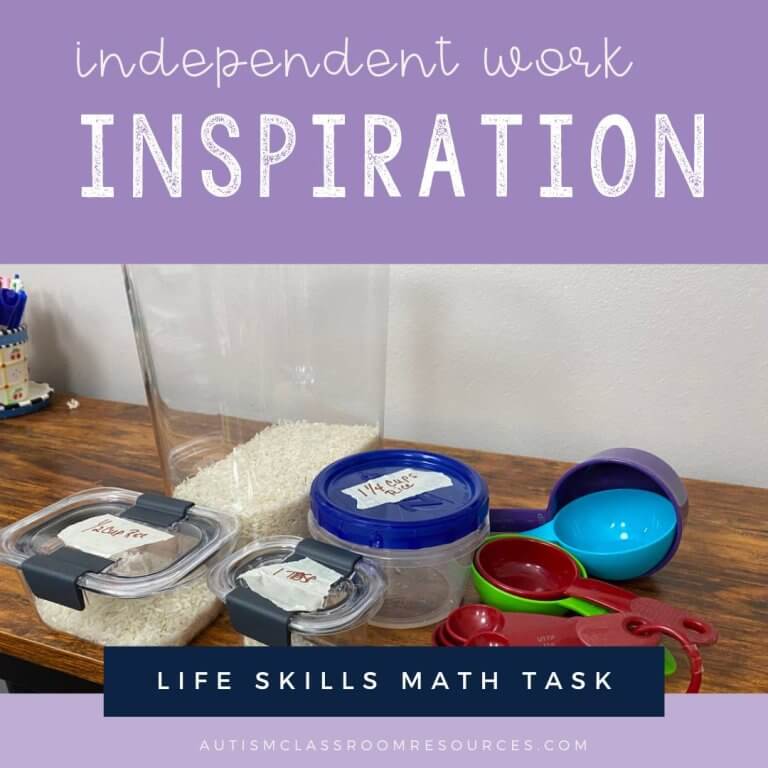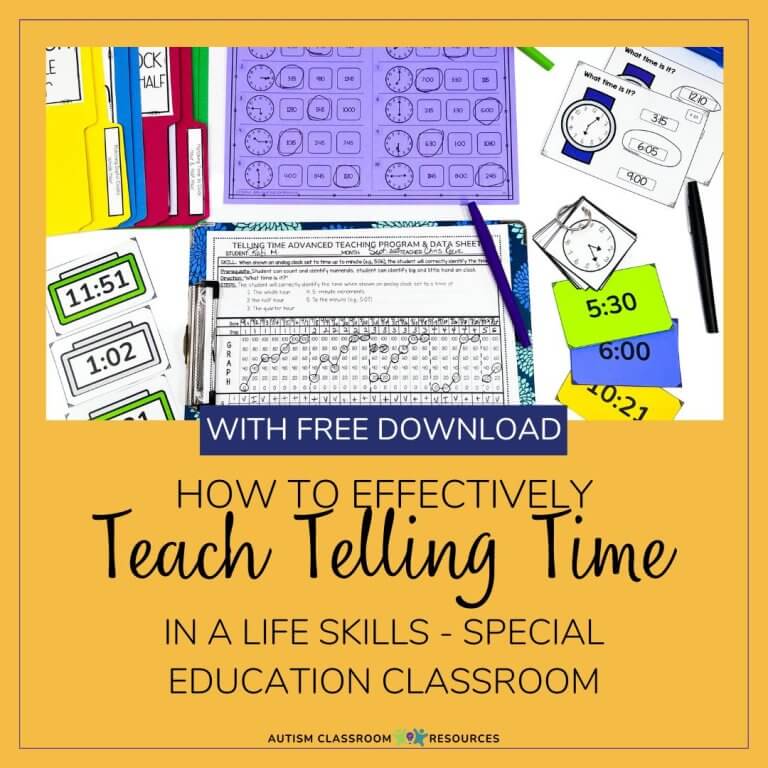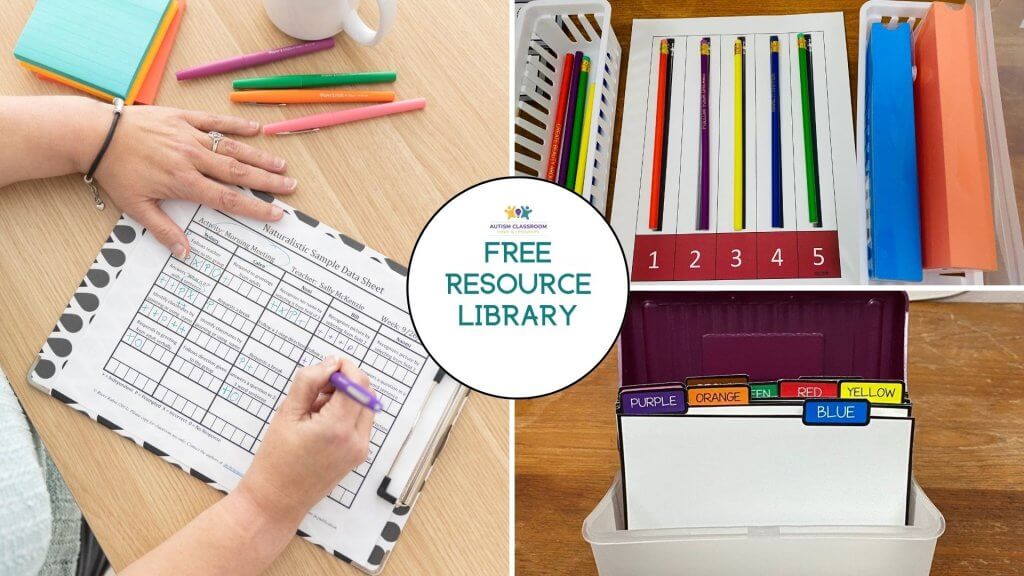Sharing is caring!


There are lots of things you need to think about when IEP goals. What can the student do and what does he or she need to do? Are there curriculum goals I am required to write for common core or state curriculum needs? What do the parents want us to work on?
Today I want to focus specifically on 5 things you need to think about before you write the actual goal itself. These are 5 questions to ask in addition to the standards of is it measureable, is it clear and is it related to the present level of performance.
1. Is this a goal that has been written before?
I realize this sounds a bit silly. However, I see many IEPs where a child has the same or similar goals every year. This is a good indication that the student is not making the progress he or she should be. Or we are not writing goals that are really appropriate to his skills. I realize many times that teachers inherit IEPs and goals from others. However, if we have been teaching this skill or it was taught before, make sure you know what the problem was with the student achieving it before we repeat it. Then think about a realistic goal and what you are going to do differently to change the outcome to be successful.
2. Is this an enabling goal?
A goal that enables is one that opens doors for the individual. They can be academic, life skills, vocational or any other area of skill, but the key is that it enables the student to be more independent and expand horizons. For instance, for some students a phonics goal is an enabling goal because it opens doors and greatly expands their ability to read new material. For others who are not phonics students, learning to read functional environmental words would be an enabling goal that opens doors to being able to function more independently in a variety of environments. I’ve written more about enabling IEP goals here.
3. Does it teach to the next environment?
What skills does this student need for the next setting he or she will be in? If he is a preschooler, what skills will he or she need to develop to be as successful as possible in kindergarten? If he’s a high school student, what skills does he need for college and/or the work force? Even students graduating with a high school diploma may need goals that are addressing social skills on the job, executive functioning, or independent living skills in order to be successful in their next environment.
4. HOW are you going to teach the skill?
This is important not just because you are going to have to teach the skill, but because it should affect how you write the goal. For instance, if I write a goal that uses the steps of performing a skill as the objectives, then I must use those steps to teach it and each step has to be mastered. Take the example on the left of the graphic below. In that example, I wrote a goal with objectives that followed how Jim will perform the skill. In that example, they are how he will learn the skill in sequence. In the example on the right, the objectives are shown that will will perform all the steps with decreasing prompting assistance. How I write the goal will ultimately affect how I will teach the skill so that I can show mastery the way the goal is written.

5. How are you going to measure it?
This goes beyond just checking the “teacher collected data” box on the IEP form. If you don’t know how you are going to measure it, it’s going to be hard to track. Write the goal with thoughts about how you are planning to measure it. Can you use a permanent product or work product? Is it something that you are writing in a way that you have to measure it every day?
If I write a goal that John will initiate a social interaction with a peer during recess on 8/10 opportunities—what does an opportunity to initiate an interaction look like?
Instead, if I write it as “John will initiate a social interaction with a peer at least 3 times during a 15-minute unstructured activity on 4/5 days,” I just have to have a baseline of how many initiations take place during the first 15 minutes of recess and then count them to collect data.
So those are some things to think about as you write the goal itself.
Looking for More Ideas on How to Make IEPs Easier to Write and Implement?
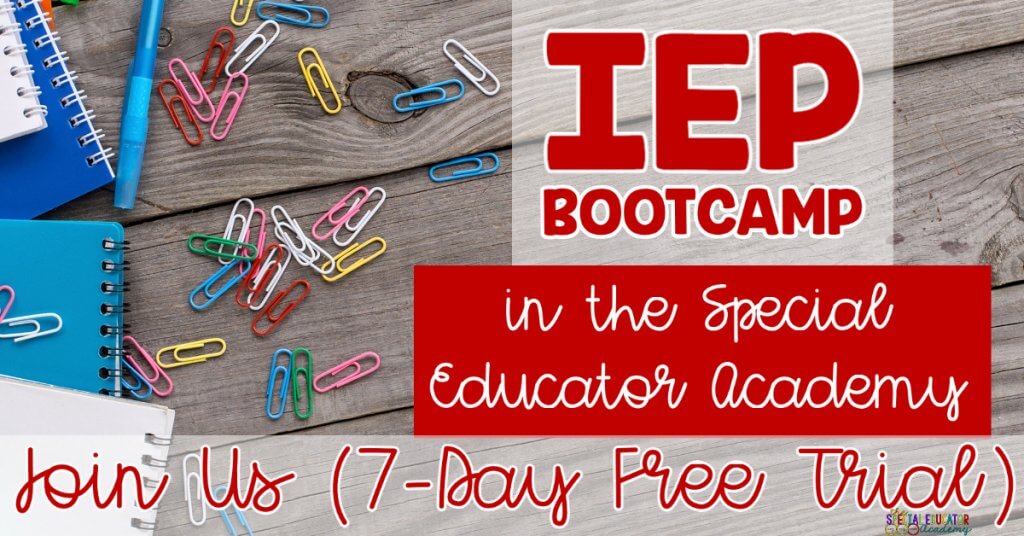
IEP Bootcamp is always available in the Special Educator Academy to up your confidence and expertise in IEPs.
Come and get tools to learn how to make your IEPs easier to write, manage and implement in your special education classroom or caseload.

![Summer resources to help survive the end of the year in special education [picture-interactive books with summer themes]](https://autismclassroomresources.com/wp-content/uploads/2018/05/SUMMER-RESOURCES-ROUNDUP-FEATURE-8528-768x768.jpg)
